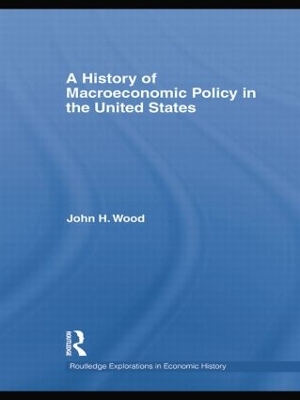Routledge Explorations in Economic History
2 total works
Keynes asked whether his ‘visionary’ ideas would overcome the interests opposed to change. However, an examination of the histories of monetary and fiscal policies suggests that this is a false distinction. The interests and ideas associated with government policies are seldom opposed. The suspicion that the latter more often follows than confronts the former is supported by the experiences documented in this book.
Professor Wood’s new title examines the controlling influences that drive macroeconomic policies in the United States. The book addresses the history of the interests, ideas, and practices of monetary and fiscal policies in the U.S., although it also examines macro-policies in other countries, particularly the UK. Professor Wood argues that economic policies in the United States have been relatively predictable and stable historically, through a detailed examination of conflicts over taxes and monetary policy such as the whiskey rebellion, Magna Carta, the Stamp Act, the Banks of the U.S., and the Federal Reserve. Issues covered also include property, economists’ theories of stabilization, taxes, deficits, and monetary policy.
The Federal Reserve System, which has been Congress's agent for the control of money since 1913, has a mixed reputation. Its errors have been huge. It was the principal cause of the Great Depression of the 1930s and the inflation of the 1970s, and participated in the massive bailouts of financial institutions at taxpayers' expense during the recent Great Recession.
This book is a study of the causes of the Fed's errors, with lessons for an improved monetary authority, beginning with an examination of the history of central banks, in which it is found that their performance depended on their incentives, as is to be expected of economic agents. An implication of these findings is that the Fed's failings must be traced to its institutional independence, particularly of the public welfare. Consequently, its policies have been dictated by special interests: financial institutions who desire public support without meaningful regulation, as well as presidents and those portions of Congress desiring growing government financed by inflation.
Monetary stability (which used to be thought the primary purpose of central banks) requires responsibility, meaning punishment for failure, instead of a remote and irresponsible (to the public) agency such as the Fed. It requires either private money motivated by profit or Congress disciplined by the electoral system as before 1913. Change involving the least disturbance to the system suggests the latter.

